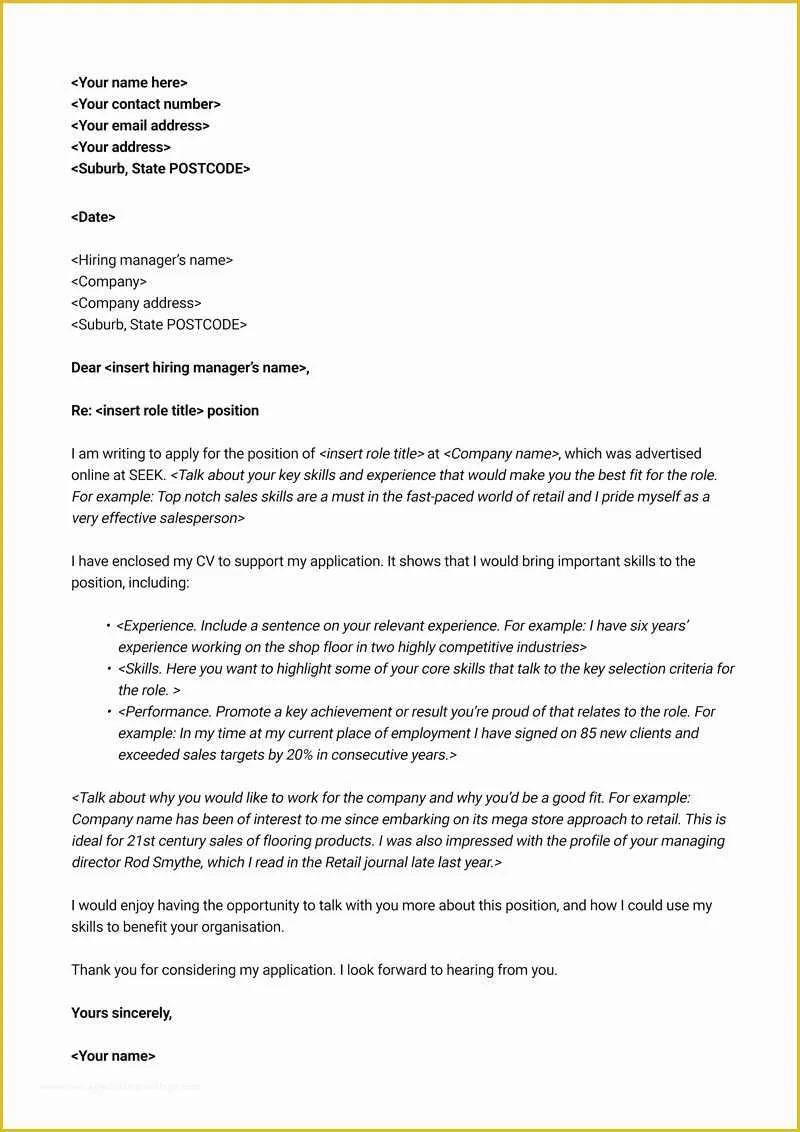Why Cover Letters Still Matter for Online Applications
In the digital age, where online applications are the norm, many job seekers question the relevance of cover letters. However, a well-crafted cover letter remains a powerful tool in your job search arsenal. It provides you with the opportunity to go beyond your resume, showcasing your personality, passion, and the specific reasons why you’re a great fit for the role and the company. While resumes offer a snapshot of your experience and skills, cover letters allow you to tell a story, connecting your qualifications to the employer’s needs and demonstrating your genuine interest. In a sea of online applications, a compelling cover letter can be the key to standing out and securing an interview.
Crafting the Perfect Cover Letter Header
The header of your cover letter is the first impression you make, so it’s crucial to get it right. It sets the tone and provides essential contact information for the hiring manager. A clean and professional header signals attention to detail and organizational skills. Always ensure the header is easy to read and contains all the necessary information to allow the recruiter to contact you easily, and is visually appealing to the eye. The header should establish your professionalism and make it easy for the reader to reach out to you.
Your Contact Information
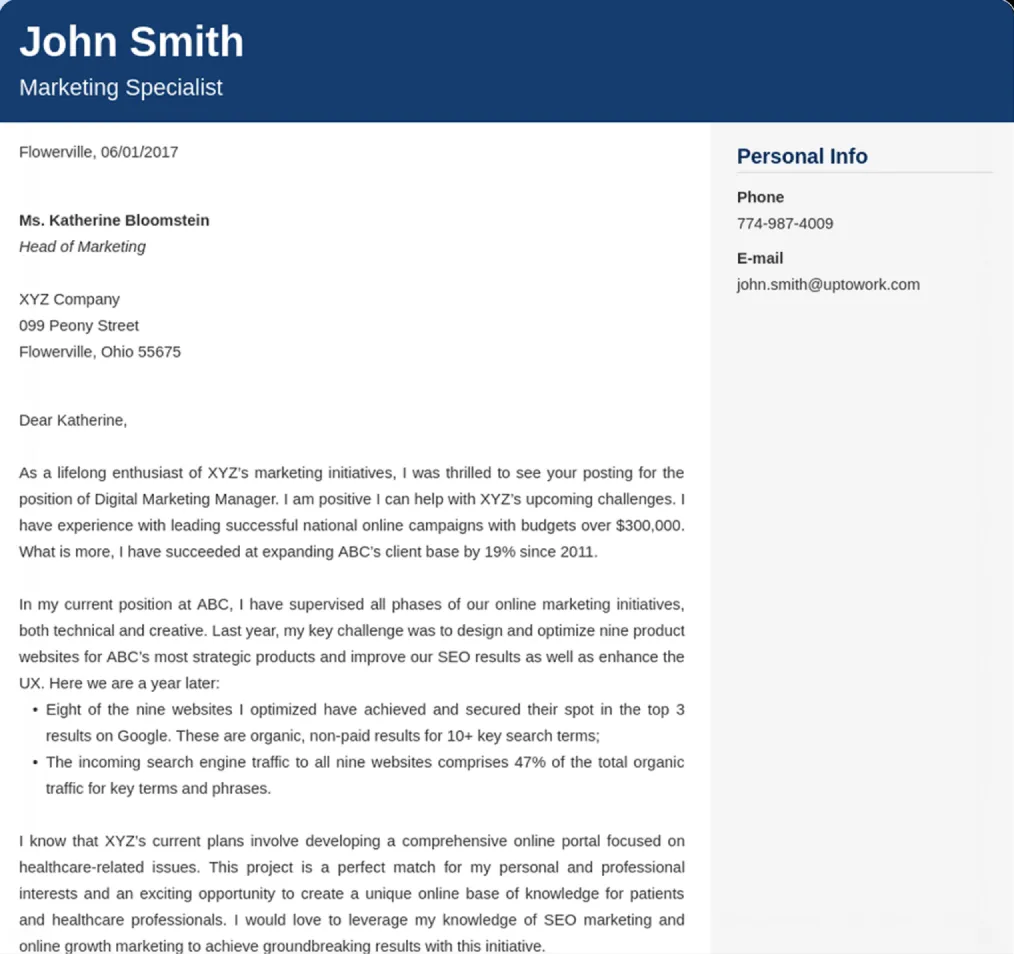
At the top of your header, include your full name, address, phone number, and professional email address. Ensure your email address is appropriate and professional; avoid using nicknames or informal language. Double-check all information for accuracy to avoid any potential communication issues. The goal is to make it seamless for the hiring manager to contact you if they are interested in your application. Use a font that is easy to read and a font size between 10 and 12 points for optimal readability.
Date
Below your contact information, include the date you are submitting the application. This shows timeliness and helps the hiring manager keep track of the application’s submission date. The date format should be consistent throughout the document. Make sure the date is current to ensure your application reflects the most up-to-date information and your interest in the role. The date is an important part of the professionalism of your cover letter and provides additional context.
Hiring Manager Information
If possible, address your cover letter to a specific person, like the hiring manager. This shows that you’ve done your research and are genuinely interested in the role. If you cannot find the hiring manager’s name, you can use a generic greeting like ‘Dear Hiring Manager’ or ‘Dear [Department Name] Hiring Team’. Try to find the name by looking on the company’s website or LinkedIn profiles. Personalizing the cover letter makes a difference as it signals your attention to detail and your genuine interest in the position.
Greeting your recipient
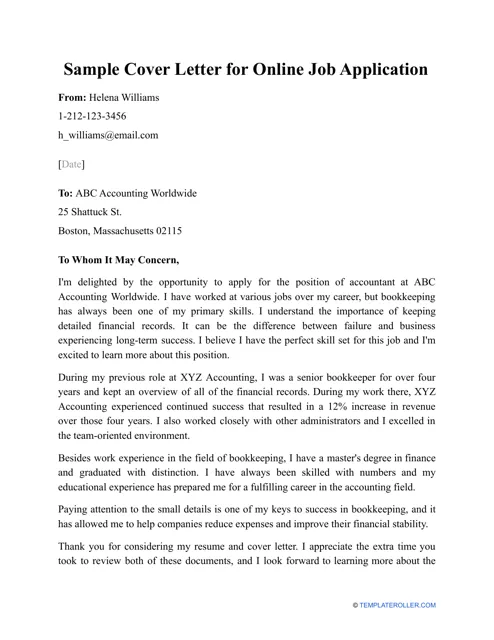
Choose a professional and appropriate greeting. ‘Dear Mr./Ms./Mx. [Last Name]’ is a standard and safe choice if you know the hiring manager’s name. If not, ‘Dear Hiring Manager’ or ‘Dear [Department Name] Hiring Team’ are acceptable alternatives. Avoid overly casual greetings. Your greeting sets the tone for your letter, so select a greeting that’s professional and appropriate for the industry and company culture.
Writing a Compelling Cover Letter Body
The body of your cover letter is where you make your case. It should be concise, well-organized, and targeted to the specific job and company. The goal is to highlight your relevant skills and experiences and show why you are the ideal candidate for the role. Tailor your cover letter to each job application, customizing it to align with the job description and the company’s needs. The body of the letter is where you demonstrate your suitability for the role and make a compelling case for your candidacy.
Opening Paragraph
Start with a strong opening paragraph that grabs the reader’s attention. State the position you are applying for and where you found the job posting. Then, briefly explain why you are interested in the role and the company. Consider including a brief statement about a key achievement or skill that aligns with the job requirements. Your opening paragraph should be clear, concise, and designed to hook the reader’s interest, encouraging them to continue reading. This is the first chance to make a positive impression.
Highlight Your Key Skills and Experiences
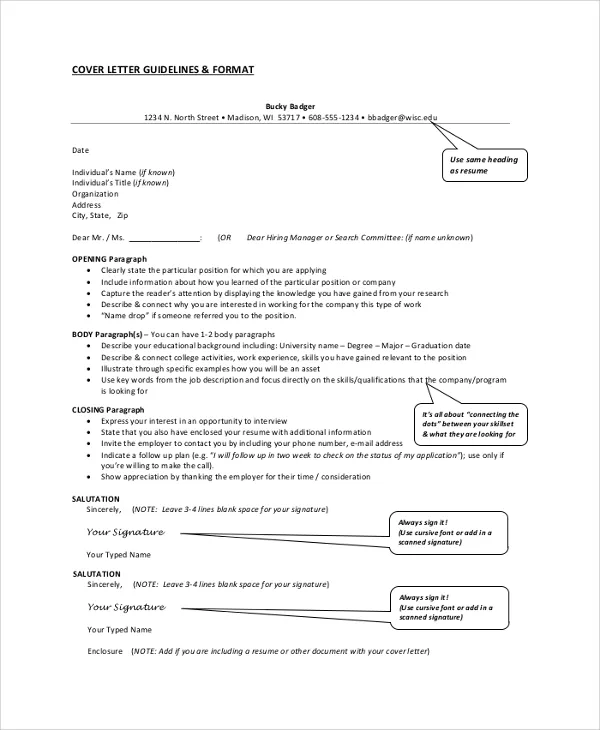
In the body paragraphs, connect your skills and experience to the job description. Identify the key requirements and responsibilities outlined in the posting, then explain how your qualifications align with them. Provide specific examples of your accomplishments and how you have used your skills in the past. Use action verbs to describe your achievements and skills. This helps the hiring manager easily understand how you can contribute to their team. Your cover letter is an opportunity to demonstrate a clear understanding of the role and show how your capabilities match the company’s requirements.
Tailoring Your Cover Letter to the Job Description
Customize your cover letter to each job application. Carefully review the job description and identify the key skills, experiences, and qualifications the employer is seeking. Use the same keywords and phrases from the job description throughout your cover letter. Show the hiring manager that you understand the specific needs of the role and the company culture. Customize each letter to highlight your most relevant strengths and experiences, creating a compelling narrative that resonates with the employer.
Quantify Your Achievements
Whenever possible, quantify your achievements with data and metrics. Instead of saying you ‘improved sales,’ state that you ‘increased sales by 15% in one quarter.’ Using numbers provides concrete evidence of your abilities and results. Quantifiable achievements make your cover letter more impactful and show the hiring manager the tangible value you can bring to the company. Quantifying your results demonstrates your ability to achieve meaningful outcomes.
Express Your Enthusiasm
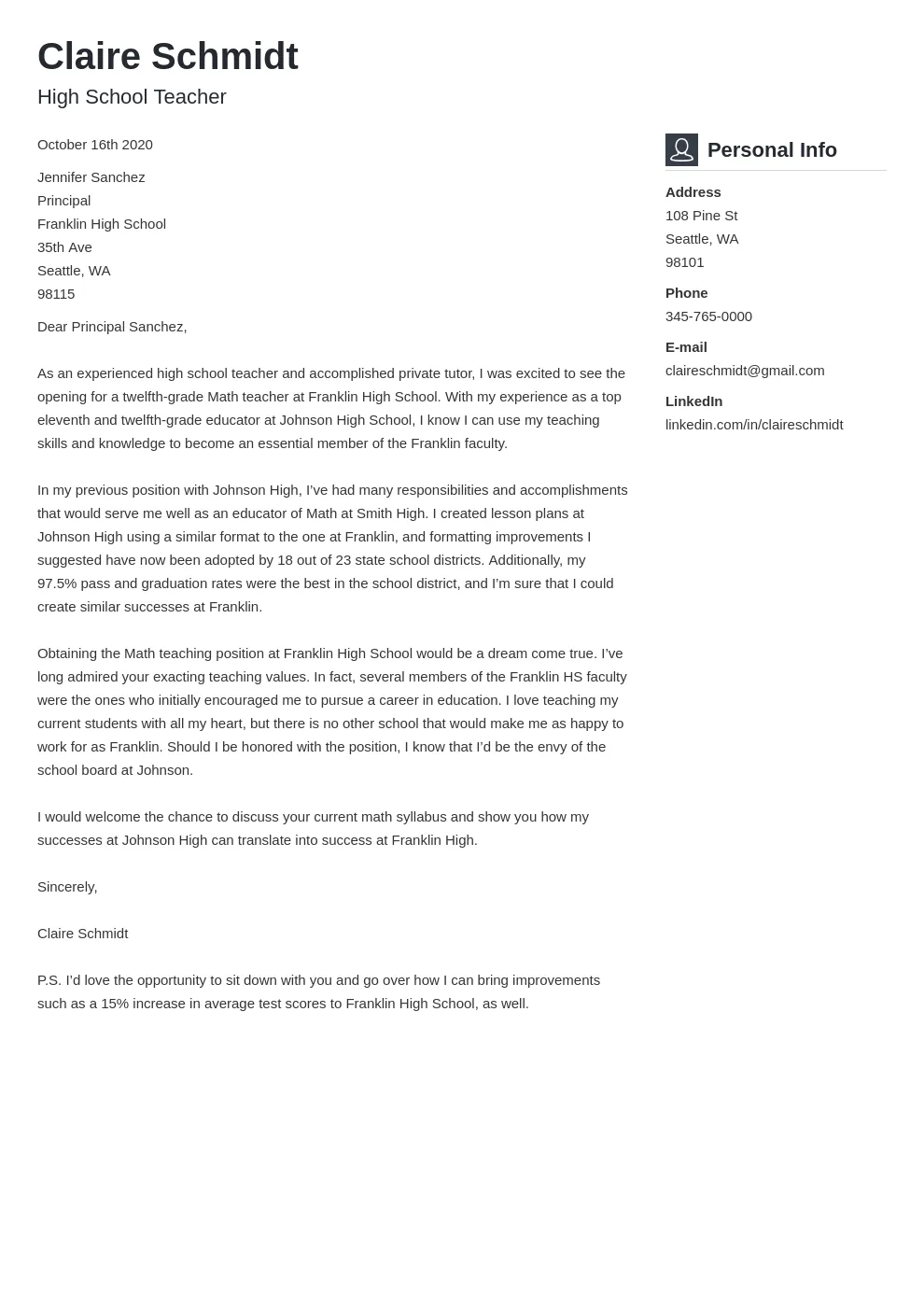
Show your enthusiasm for the role and the company. Explain why you are interested in the specific opportunity and what excites you about the company’s mission, values, or products. Demonstrating genuine interest is crucial in conveying your desire to join the team. A cover letter allows you to demonstrate your passion for the field and the specific company. Research the company’s values and culture to show you’re a good fit. Your enthusiasm for the position is a key factor in securing an interview.
Closing Your Cover Letter Effectively
The closing paragraph of your cover letter should be concise and action-oriented. It summarizes your interest in the position, reiterates your qualifications, and provides a clear call to action. The closing should leave a positive and memorable impression on the hiring manager, encouraging them to contact you for an interview. A well-written closing reinforces your value proposition and makes it easier for the recruiter to move forward in the hiring process.
Call to Action
Include a call to action. For example, state that you are looking forward to discussing your qualifications in an interview or express your willingness to provide additional information. Make it easy for the hiring manager to take the next step. A clear call to action shows your initiative and interest. It facilitates the process and encourages the reader to move forward with your application.
Professional Closing
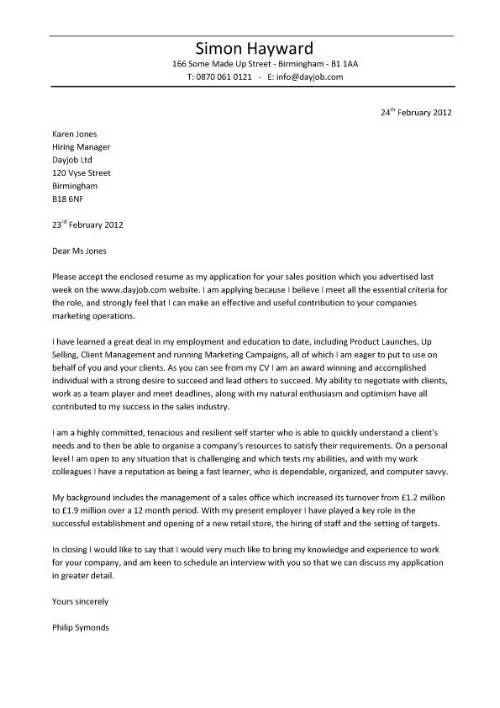
End your cover letter with a professional closing, such as ‘Sincerely,’ ‘Best regards,’ or ‘Thank you.’ Following the closing, include your typed name. Avoid overly casual closings. Choose a closing that is appropriate for the industry and the level of formality you established in your letter. A professional closing maintains your professional image.
Proofreading and Formatting for Online Applications
Proofreading and formatting are crucial for any cover letter, especially for online applications, where first impressions are critical. Errors can reflect poorly on your attention to detail and professionalism. Ensure that your cover letter is well-formatted and easy to read. Proper formatting and proofreading are essential for a positive impression.
Formatting Tips for Easy Readability
Use a clear and readable font, such as Times New Roman, Arial, or Calibri, with a font size between 10 and 12 points. Use single spacing within paragraphs and double spacing between paragraphs. Align your text to the left and avoid justification, which can create uneven spacing. Ensure your cover letter is easy on the eyes. Good formatting enhances readability, which will increase the likelihood of the hiring manager reading your entire letter.
Proofreading Your Cover Letter
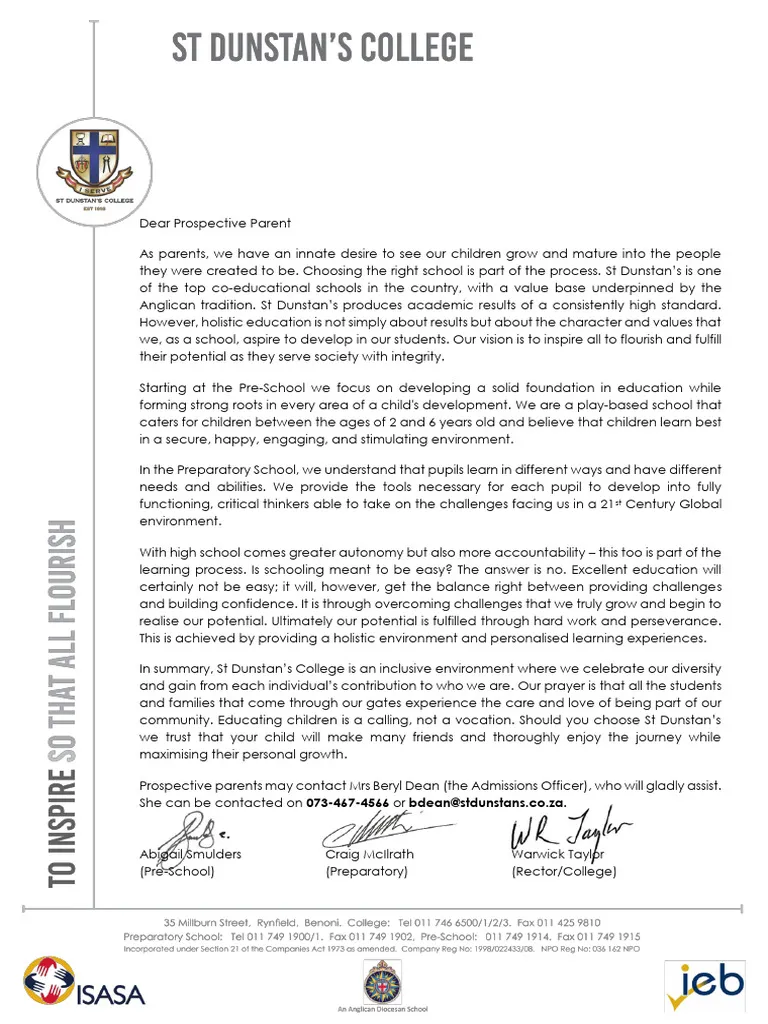
Proofread your cover letter carefully for any errors in grammar, spelling, and punctuation. Ask a friend, family member, or career counselor to review your cover letter. Multiple sets of eyes can help catch mistakes you might miss. Incorrect grammar and spelling errors can lead to your application being disregarded, so it’s important to ensure your cover letter is polished and professional. Proofreading shows you care about the details.
Cover Letter Examples for Various Online Application Scenarios
Here are some examples that show how you can tailor your cover letter for various situations. Adapting to the specific requirements of different roles and experiences will improve your chances of success.
Cover Letter for Entry-Level Positions
When applying for entry-level positions, focus on your transferable skills, education, and any relevant internship or volunteer experience. Highlight any projects or coursework that demonstrate your abilities. Showcase your enthusiasm and willingness to learn. Since you may lack extensive professional experience, your cover letter should focus on your potential and demonstrate your eagerness to contribute to the company. Tailor the letter to reflect your understanding of the role.
Cover Letter for Experienced Professionals
For experienced professionals, emphasize your achievements and expertise. Provide specific examples of how you have contributed to past companies. Quantify your accomplishments whenever possible. Align your experience with the job description, highlighting the key skills and qualifications the employer seeks. Use the cover letter to showcase your value, including how you have solved problems, managed teams, or increased revenue for previous employers. It should demonstrate a clear track record of success.
Cover Letter for Career Change
If you’re changing careers, address the skills gap and explain why you’re making the transition. Highlight any transferable skills from your previous roles. Explain your motivation for the career change and how your skills and experiences can contribute to the new role. Demonstrate a clear understanding of the industry and the company. Use your cover letter to convince the hiring manager of your suitability for the new role.
Common Mistakes to Avoid in Your Online Application Cover Letter
Avoiding common mistakes can significantly enhance your cover letter. These errors can hurt your chances of getting an interview, so it is crucial to pay attention to detail. Careful review and editing can eliminate easily avoided blunders.
Generic Cover Letters
Avoid sending generic cover letters that could be sent to any company. Customize each cover letter to match the specific job and company. Address the hiring manager by name, demonstrate your knowledge of the company, and tailor your skills and experiences to the job description. Generic letters do not make a strong impression and indicate a lack of interest.
Typos and Grammatical Errors
Typos and grammatical errors are among the most common mistakes in cover letters. Proofread your cover letter carefully before submitting. Ensure that all information is accurate and the document is free of errors. Errors demonstrate a lack of attention to detail and can undermine your credibility. Always ask someone else to review the letter. Using spell check is helpful but doesn’t replace thorough proofreading.
Overly Long Cover Letters
Keep your cover letter concise. Aim for a maximum of one page. Hiring managers often have limited time to review applications. Focus on the most relevant information and avoid including unnecessary details. A well-crafted, concise letter is more impactful than a lengthy one. Make every word count and focus on the key highlights of your qualifications.
By following these guidelines, you can create a compelling cover letter that significantly boosts your chances of landing an interview. Remember to tailor each cover letter to the specific job and company, highlighting your relevant skills, experiences, and enthusiasm. Good luck with your online applications!
